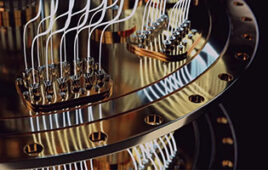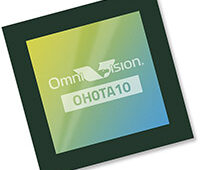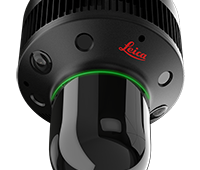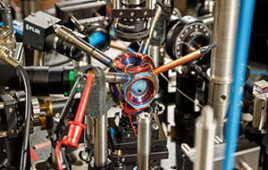From counting steps to mending bonds, a new Fitbit-like wrist sensor for mother and child aims at alleviating postpartum depression.
Psychology assistant professor Kaya de Barbaro is creating a mother-child wrist sensor system to improve the mental health of mothers by measuring stress levels and providing encouraging messages.
The system would include a wrist sensor on the mother and an ankle sensor on the child. The child’s sensor collects data about the infant’s metrics such as heart rate and movement and correlates that data with how the mother reacts in order to analyze their relationship.
“Basically, what we do is leverage mobile and wearable sensors to record day-to-day interactions between mother and child,” Barbaro says.
“They may tell us how a mother can pass on depression to her child simply by the way she acts around them.”
According to the Mayo Clinic, postpartum depression is a type of mental illness affecting mothers who recently gave birth. Symptoms including feelings of inadequacy and severe anxiety.
Barbaro says the child’s sensor also includes an audio recording device to track when the infant cries.
“One of the things we’re trying to create is a technology device for mothers — to give them supportive comments to reassure them for moments like when the infant has been crying for a very long time,” she says.
The sensor design sends out general encouragements such “great job” and “take a breather” when it senses stress indicators such as a higher heartbeat, Barbaro says.
Small motivational messages actually go a long way in benefiting the psychology of the mother, according to biology associate professor Jennifer Moon, who’s a mother of three.
But, she added, the success of the system depends on the personality of the mother.
“(The success of the sensor) kind of depends on the personality of the mom,” Moon says.
“I think if something were to say ‘be sure to take a walk,’ an expletive would come out of my mouth. But if it sends an encouragement, that might be more effective than just telling me to do another thing.”
Encouraging messages are designed to improve the mindset of the mother, according to Barbaro.
Moon adds that the Fitbit-like technology has potential to help the isolating aspects of motherhood.
“Motherhood can be a very isolating experience, especially if you’re breastfeeding,” Moon says.
“You’re the only person who can feed that baby. No one else can take that task away from you, even when you’re bottle feeding, because culturally, the woman is more responsible for the baby.”
Isolation contributes to the perceived loss of support a mother can feel when she’s slipping into postpartum depression, which children can mirror by not showing as strong of a connection to their parents, according to Barbaro.
“If a child experiences something upsetting like getting a toy taken away from them, yet fails to engage the parent in the situation, it could be a sign of perceived isolation,” Barbaro says.
Barbaro says the sensor system should psychologically encourage the mom to engage with the child in situations such as these by making her feel like she’s being a proactive parent.
“No matter what happened in your childhood while growing up, there are always opportunities to get help and change your situation,” Barbaro says.
Theresa O’Halloran, associate professor in molecular biology and mother of two, says she hopes to see Barbaro’s Fitbit-like design in the future.
“I think (the sensor) is a great idea,” O’Halloran says. “I have a Fitbit, and if the idea could be integrated into existing technology, it could be shown as a good way to counter postpartum depression.”
Source: University of Texas at Austin




